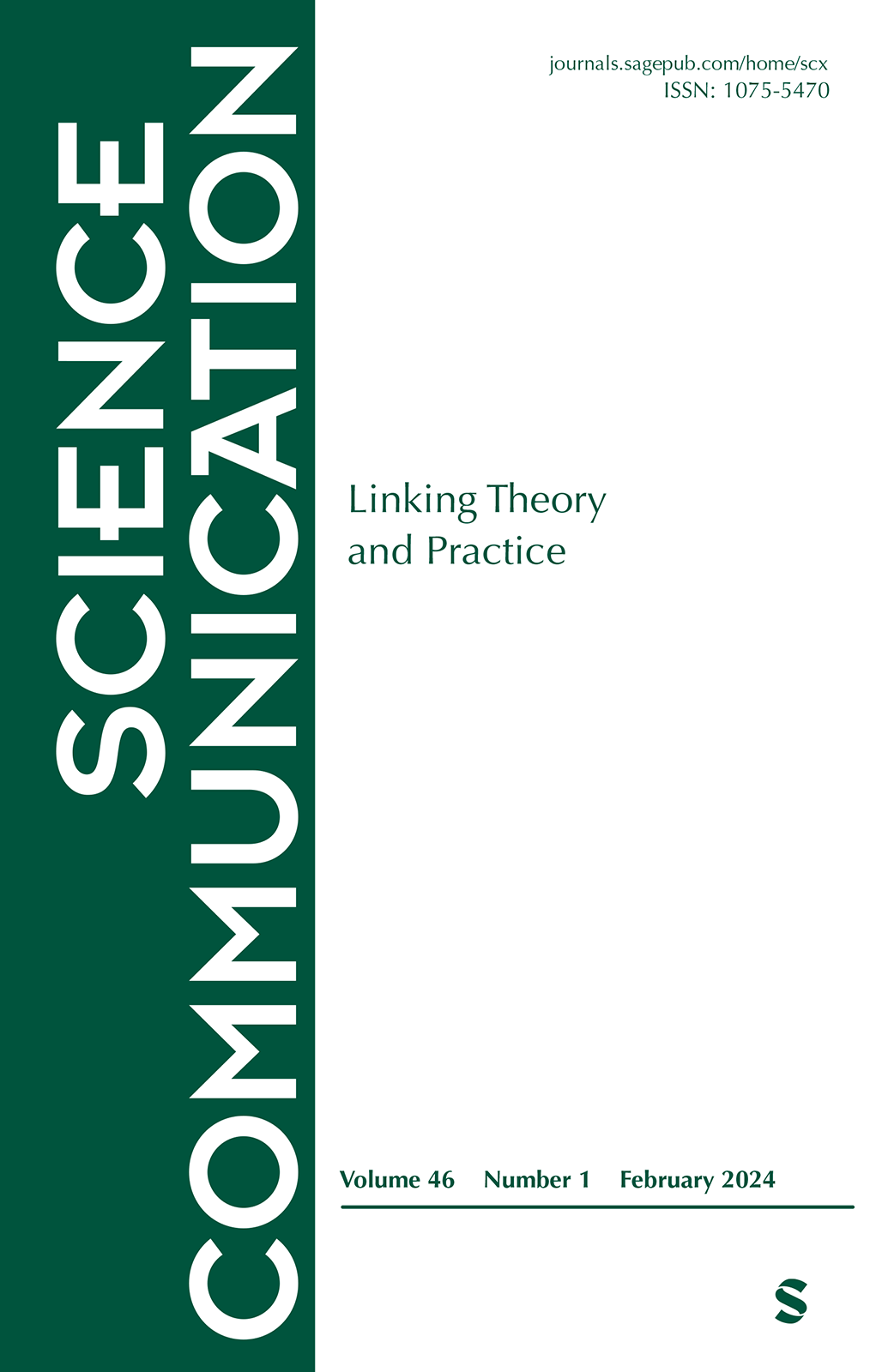在工作坊中使用科幻小说和设计思维与低收入、边缘化社区分享研究成果
IF 4.1
1区 文学
Q1 COMMUNICATION
引用次数: 0
摘要
我们与低收入的参与者一起参加互动式、以讲故事为基础的社区研讨会,讨论与有害藻华有关的科学项目的结果。我们采用了两种基于故事的研讨会形式——一个是科幻故事,另一个是个人研究叙述故事。在这篇研究报告中,我们思考了两个主要主题:两种基于故事的方法之间的比较,以及与边缘化参与者的合作。通过我们的反思,我们的目标是帮助告知未来希望在科学传播中融入科幻方法和/或与边缘人群合作的努力。本文章由计算机程序翻译,如有差异,请以英文原文为准。
Using Science Fiction and Design Thinking in Workshops to Share Research Results With Low-Income, Marginalized Communities
We worked with low-income participants in interactive, storytelling-based community workshops to discuss results from a scientific project related to harmful algal blooms. We used two story-based workshop formats—a science-fiction story and a personal-research-account story. In this Research Note, we reflect on two main topics: a comparison between the two story-based approaches and work with marginalized participants. With our reflections, our aim is to help inform future efforts that wish to incorporate science fiction approaches and/or work with marginalized populations in science communication.
求助全文
通过发布文献求助,成功后即可免费获取论文全文。
去求助
来源期刊

Science Communication
COMMUNICATION-
CiteScore
13.50
自引率
4.40%
发文量
19
期刊介绍:
Science Communication is a prestigious journal that focuses on communication research. It is recognized globally for publishing top-quality manuscripts that demonstrate excellent theoretical frameworks and robust methodology. Our journal embraces a broad definition of science, encompassing not only the natural and physical sciences but also social science, technology, environment, engineering, and health. Regardless of the scientific area, effective communication is always the focal point of our investigations.
Apart from theoretical and methodological rigor, we place great emphasis on the practical implications of scientific communication. Therefore, we expect all submitted manuscripts to address the real-world applications and significance of their research, alongside theoretical considerations.
In summary, Science Communication is an internationally renowned journal dedicated to bridging the gap between science and society. By promoting effective communication in various scientific domains, we strive to engage readers with intriguing research that has tangible implications for the world around us.
 求助内容:
求助内容: 应助结果提醒方式:
应助结果提醒方式:


